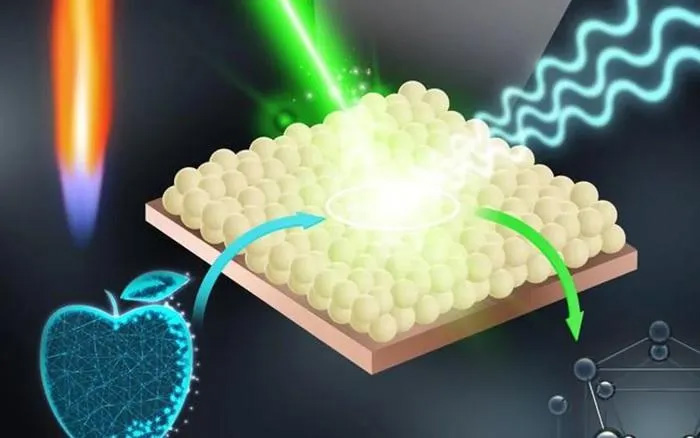To help consumers quickly detect pesticide residues on fruits and vegetables, experts at the Karolinska Institute in Sweden (KI) have developed a miniature sensor capable of detecting pesticides on fruits within minutes.

This sensor detects pesticides on fruits in just a few minutes.
These are nano sensors that stem from an invention in the 1970s known as SERS (Surface-Enhanced Raman Spectroscopy), which amplifies biomolecular diagnostic signals on metal surfaces by over a million times.
The nano sensors from KI are reproducible, cost-effective, and more accessible compared to traditional methods. They can be used to monitor pesticide traces on fruits in stores. The sensors are created using a flame-spraying technique to evenly distribute silver nanoparticles on glass surfaces. Subsequently, the research team refined the distance between individual silver nanoparticles to enhance sensitivity.
Tests on sensitivity have shown that the sensor reliably detects toxic residues with consistent molecular signals and performance even after two and a half months on the test product surface. In experiments, parathion-ethyl, a pesticide banned or restricted in most countries, was applied at low concentrations to apples. As a result, KI detected pesticide residues on the apple surface within 5 minutes without damaging the fruit.


















































